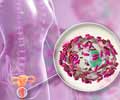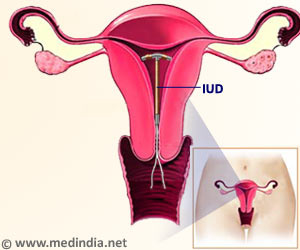A product containing healthy vaginal bacteria discovered by scientists has proved effective against recurrent bacterial vaginosis (BV).

The findings, published in the New England Journal of Medicine, come from a Phase IIB trial of LACTIN-V, a so-called "live biotherapeutic," conducted at UC San Francisco, UC San Diego, Rush University Medical Center in Chicago, and Washington University in St. Louis.
The randomized, placebo-controlled, double-blind trial showed a significant reduction in the recurrence of BV and found no safety risks from the bacteria used in the LACTIN-V formulation of the species Lactobacillus crispatus CTV-05, a common bacterium found in healthy vaginal microbiomes.
While BV is commonly treated with an antibiotic called metronidazole, up to three-quarters of women get the infection again within three months. The study found that LACTIN-V reduced these recurrences significantly. Just 30 percent of women who were given LACTIN-V after initial antibiotic treatment had a recurrence within 12 weeks, compared to 45 percent of the women who received the antibiotic and a placebo.
LACTIN-V, which is produced by Osel, Inc. of Mountain View, Calif., comes in a powder form that women self-administer with a vaginal applicator. Once the healthy bacteria in the powder colonize the vagina, they produce lactic acid, which inhibits the growth of bacteria associated with BV. LACTIN-V is stable for more than a year at room temperature, and more than two years in the refrigerator.
The 228 women in the trial used LACTIN-V once a day for five days, and then twice a week for 10 weeks. Researchers said the product's ease of use could make it an ideal medication for women around the world.
Advertisement
"This is an entirely new approach that strengthens the vaginal microbiome against infections," said Anke Hemmerling, MD, PhD, MPH, a researcher at UCSF and the senior author of the new study. "This could be a breakthrough for the long-term prevention of BV."











